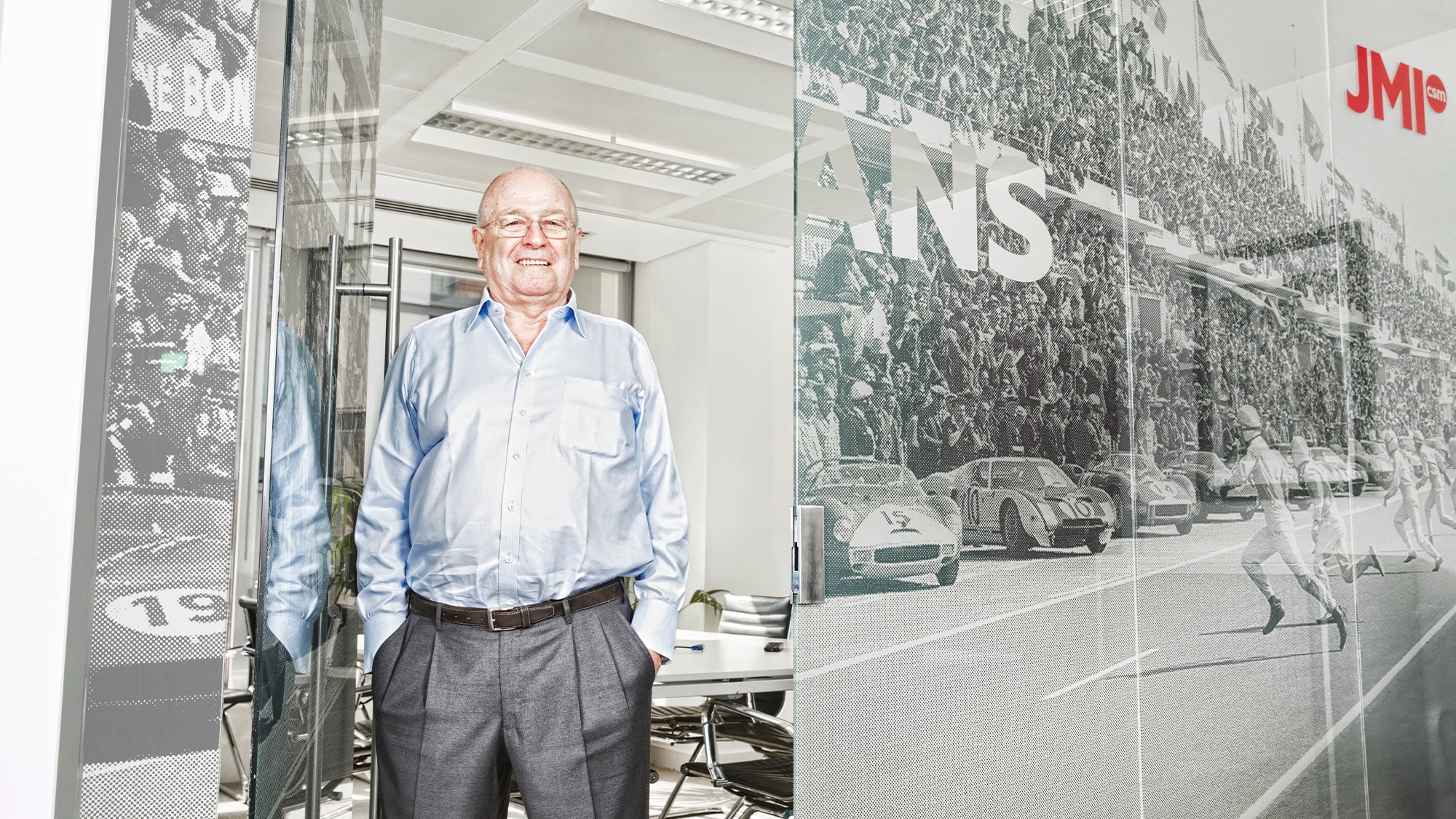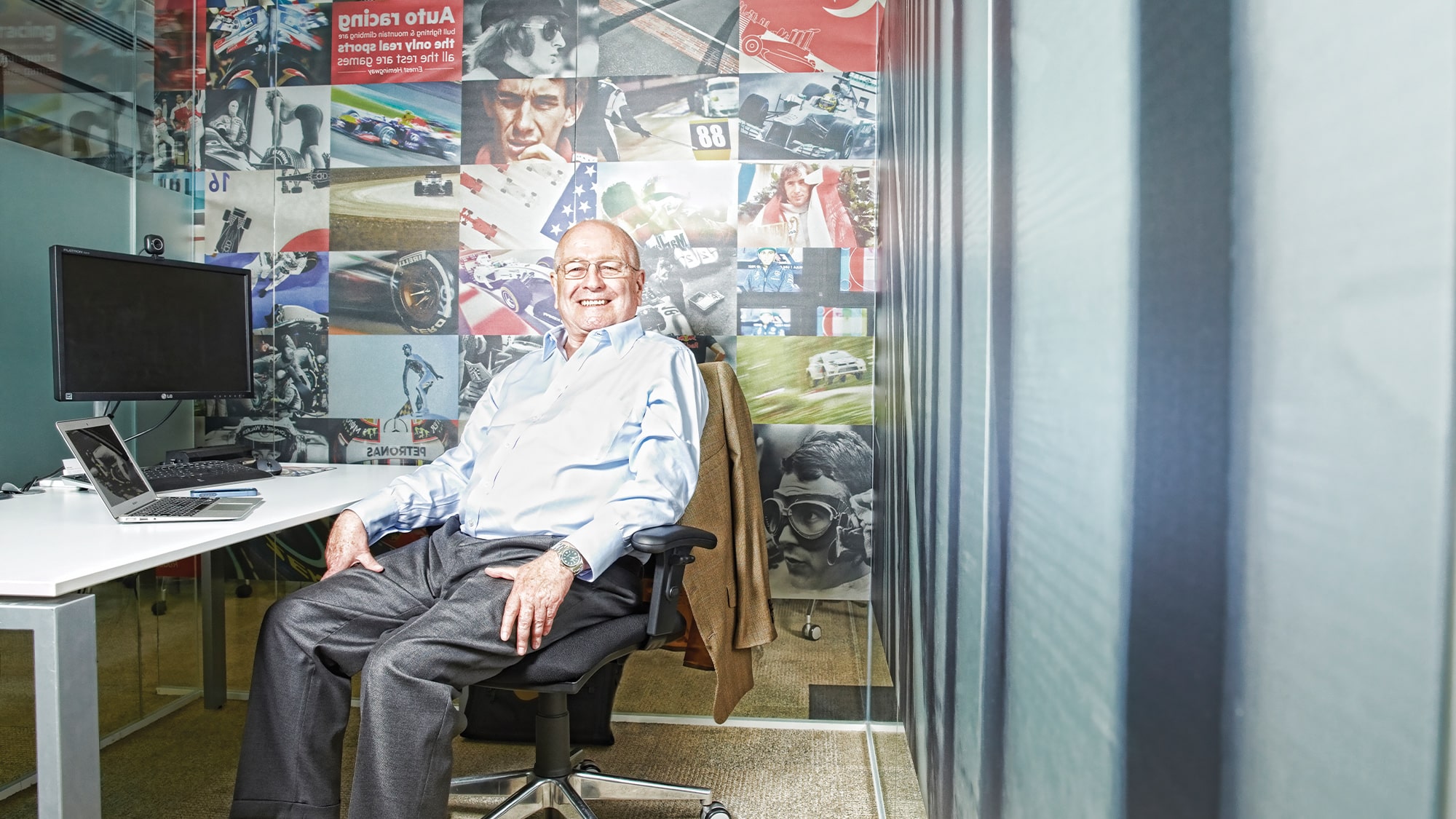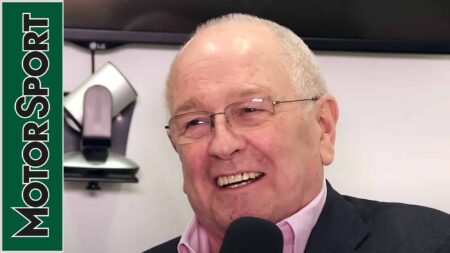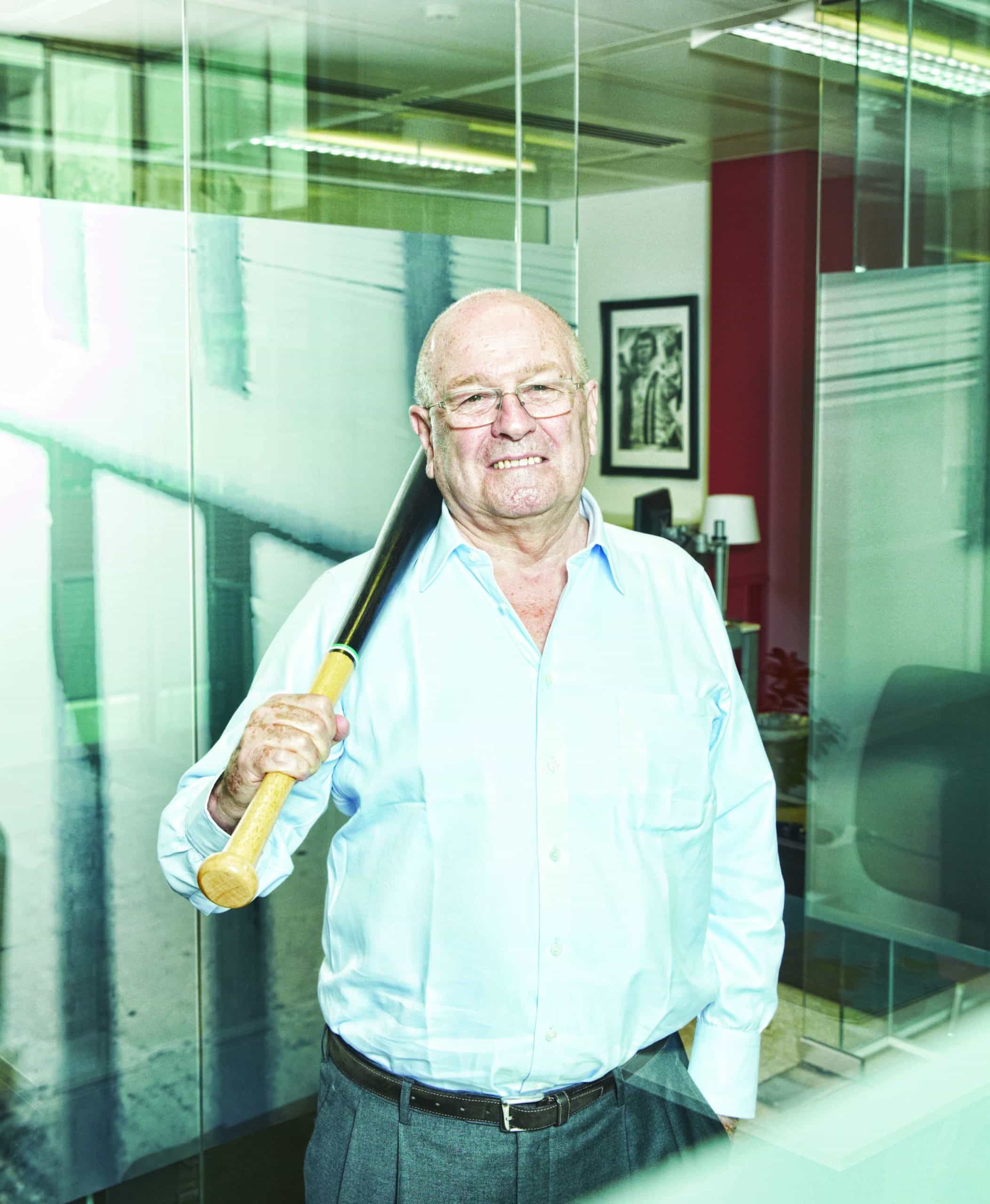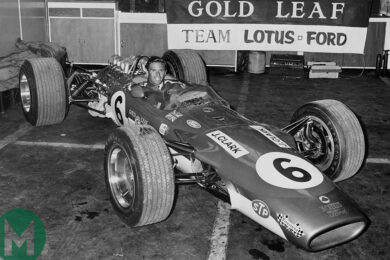“It was either a Friday or Saturday night. I tracked him down on the phone at Alexander Hesketh’s house in South Kensington. James was such a straightforward, honest guy. He said [cue plummy Hunt impersonation], ‘Oh, so I’m going to have to negotiate, am I?’ And I said well, that’s what you do, yes. ‘Oh dear’.
“So we had one of those conversations, and ended up doing a deal. A very cheap deal because he didn’t have a leg to stand on, although he had an offer from Lotus. But he wouldn’t drive a Lotus because he reckoned they were death traps. He’d been quite cosy with [Jochen] Rindt and was really shaken up by his accident [at Monza in 1970], even though he was only an F3 driver at the time.”
At this point, I have to ask: what did he think of Rush, Ron Howard’s hit movie about that fabled ’76 season? “It wasn’t bad,” he says. “They had to put a bit of antagonism in, which wasn’t there. There were a few incidents through the year where they got a bit excited, but the pair were very amusing, Niki in his wonderful Germanic manner and James in that Battle of Britain Spitfire pilot way of his.”
For all his commercial nous, Hogie cheerfully admits that he didn’t realise at the time how the ’76 season was ‘Year Zero’ for F1 in terms of its global popularity. But he says someone else did. “By the time we got to the British GP that year, lots of TV companies suddenly thought, ‘Hang on, something’s going on here’. They started following the circus around, and by the time we got to Japan the world wanted to broadcast it. And then Bernie [Ecclestone] said, ‘Yeah, you can have it – but you take every race next year and broadcast it in full’. If you know Bernie, that’s very much his mentality.”
He also credits someone else for recognising the reality of how F1 was changing. “Bernie had immense admiration for Colin Chapman going way back. I remember walking down the paddock at one race where there’d been a startline accident, and there was the usual chaos. The marshal had gone to lunch and couldn’t drop the flag to restart – all of that! Colin came marching along, Bernie was sitting with me in the back of the Marlboro hospitality tent, and said, ‘Bernie, we need to go and tell these people this f****** sport’s a business. They’ve got to get on with it!’”
Hogie retains great affection for Chapman. “At that time I was on the F1 Commission,” he recalls. “And in those meetings I’d always sit next to Colin because if you asked him about something technical he’d have no hesitation in explaining it in terms I could understand.”
What does he think Chapman would make of the increasingly restricted F1 of today? “Colin? He’d be in it right up to here. ‘Don’t worry, it’ll be all right!’”
By the end of the ’70s, Hunt’s halcyon days were fast becoming a distant memory for McLaren, which had slipped into ground effect-era mediocrity. Change was needed, but the conduit would be the sponsor rather than the team management. Rondel had morphed into Project 4, and Hogie identified his old friend Ron Dennis as the man to raise McLaren from its doldrums. “Ever since square one I was always impressed by his drive, energy and charisma,” he says. “He was brilliant with engineers and the people who ran his team.”
A golden era followed, under TAG-Porsche power and then Honda, but always in the unmissable DayGlo and white of Marlboro. “It was down to three key drivers: Prost, Lauda and Senna,” Hogie says. “Niki was a clever old fox. He did one lap behind Prost in Brazil [in ’84] and thought ‘f*** – I’m out of here!’ But Prost would say to this day that watching how Niki went about his job was what helped him become the driver we knew.”
Like Jo Ramirez, Hogie was one of the few who managed to remain on good terms with both Alain Prost and Ayrton Senna during their combustible rivalry between 1988 and ’90. “I had a problem because I liked them both,” he smiles. “With Prost, it got to the point where he could tell you if he was going to win during a weekend. I used to hang around with him in the back of the truck, and mostly we’d talk about sex, which was fine!
“After that silly Senna film, I bumped into him in Abu Dhabi. I hadn’t seen him for years, went up to him and said ‘Listen, I’ve just seen Senna and I think it’s crap’. He said ‘Don’t worry, John, don’t worry’. But it was unfair. Let’s put it this way: Senna was no angel. I was there in the back of the truck when they agreed the first-into-the-first-corner thing at Imola in ’89 – and Prost was first into the first corner. Ron subsequently went apeshit and had Senna in tears. But that was Senna’s weird, religious guilt complex. It was the deep Catholicism in him: provided the penance was big enough he could get away with being a shit.
“Senna wasn’t a very amicable individual. But towards the end of his time at McLaren he got to know James very well. I don’t know what James used to talk to Senna about, but regular conversations with him were usually about sex, drugs and rock’n’roll, and I think that opened Senna’s eyes. ‘Is that what you’re supposed to do with girls?’ His manager Julian Jakobi told me that once, after dinner, when Ayrton may have been persuaded to have a glass of red wine, James said to him, ‘Have you ever driven an Austin A35 van? It’s a traditional British kart! I’ve got one just around the corner and use it all the time’. They drove it to Cadogan Square and started doing laps… When Senna stopped the thing started to melt.
“In that last season [’93] he really started to mellow. And I used James to tell him in so many words to stop being a prick on certain things. Ayrton was very upset when James died.”
Hogie also recounts the ‘million dollar a race’ deal of that ’93 season. “Ron said ‘I haven’t got the money to pay Senna. If you want him, you pay’. Thanks, Ron. So I agreed a million dollars a race. And of course I hadn’t allowed for how intransigent Senna could get. When we got to Imola, he phoned from Brazil and said ‘I’m still in São Paulo’. The money hadn’t arrived. ‘When it arrives I’ll get on the plane’. He made the Varig flight land in Rio and wait there until the money arrived, then they could take off – with the other 360 passengers on board!”
❖
In ’97 a pair of McLarens lined up for the first Grand Prix of the season in colours other than DayGlo and white. Marlboro McLaren, an F1 fixture for nearly a quarter of a century, was no more – and again, it had been Hogie’s call. Marlboro Ferrari never did trip off the tongue in quite the same way.
“We didn’t really switch, we were already with Ferrari in a small way,” he says. “It was a question of whether we should ratchet up that involvement to a proper level and bail out of McLaren. I could see, and it didn’t take a genius to spot it, that Ron had got himself sucked into Peugeot, they tested the Chrysler [Lamborghini V12] and the early Mercedes, which was nowhere near ready – and I could see years of pain. I’d been through it before, in 1978 through to ’81 without winning a race, and you can feel the Bunsen burner… I was determined not to go through it again. And bluntly, Ferrari is the only team you can go to and have a bad year. So I decided we had to play safe.”
A tough conversation, given his long friendship with Dennis? “Hmm… actually with Ron it wasn’t! I remember very clearly it was the Spanish GP and I had all the press releases, and the lawyers outside – they wouldn’t come in with me! He said ‘I know why you’re here’. And I told him we were going to have to pull the plug. Ron being Ron, he very quickly had Ekrem [Sami] on the plane up to Germany talking to the West tobacco company. It was the end of a long relationship, which was sad.”
The Ferrari/Marlboro partnership would, of course, flourish once the Michael Schumacher superteam properly kicked into gear at the turn of the century. But by 2002 Hogie realised he’d had enough. “You get to a point in your life when you have to decide to move forward or stay still. I was coming up to 60. The next career step within the company was huge and I probably didn’t have the appetite for it.
“It was getting to the point that even motor racing was getting boring. The thought of having another demo from Michael Schumacher – who is a lovely guy, by the way – didn’t thrill me. And you get old! I’ve always had a thing in my mind that I never want to be the silly old prick. I’ve seen plenty of those in companies.”
